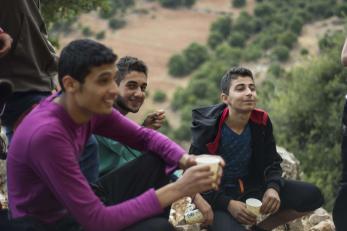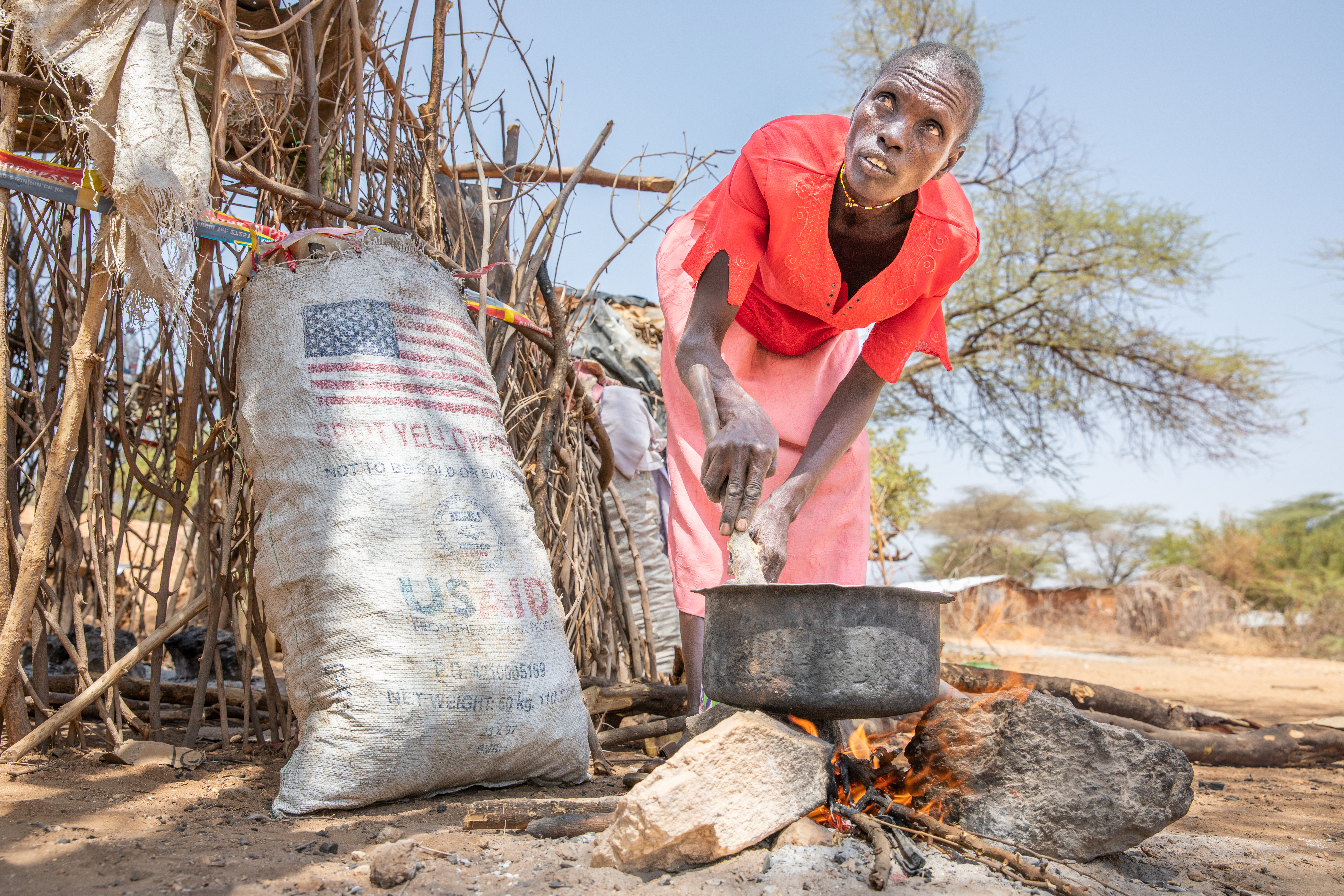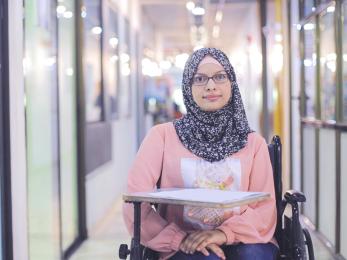Expanding psychosocial support for conflict-hit youth builds pathways in Middle East

Psychosocial support for children and youth who have spent their lives trapped in or exposed to conflict is critical to helping them drive future peace in the Middle East, Su’ad Jarbawi, Mercy Corps’ Middle East regional director, recently told a group of government officials, researchers, aid workers and donors gathered at Positive Pathways, a conference in Jordan to discuss the risks and opportunities facing children and youth of the region.
Young people are the most affected population in the Middle East region, experiencing conflict and displacement at a critical time in their personal, emotional and physical development. These experiences can have a lasting impact on their quality of life and long-term emotional well-being. Young people are often forgotten in humanitarian response, viewed as passive victims or even security threats.
"We owe to ourselves, we owe it to the present and the future to put children and youth center stage, where they belong,” Jarbawi said.
The Middle East is incredibly young, with more than 120 million people aged between 10 and 24 years. Speakers at the conference focused on the importance of psychosocial support programming, recent research on the lasting impact of such interventions and the importance of psychosocial support for youth in transition.
A number of innovative ways humanitarian workers can support emotional well-being for children and youth were shared at the event, ranging from the Brazilian martial art of capoeira to comic books focused on positive themes to online training for mental health practitioners.
Research has shown the experiences of childhood and adolescence shape behavior in adulthood, and, if left unaddressed, the psychological effects of prolonged and toxic stress may be felt by generations to come.
Brains that are still developing are especially vulnerable at a time when the foundations of cognitive and social development are still being laid, defining the future choices and coping mechanisms young people use to navigate their lives.
Psychosocial programs can mitigate this, a growing body of evidence attests. Such programs, based on the specific needs of various communities, enable conflict-affected youth to express their emotions and thoughts, while providing them with a sense of normalcy, said Catherine Panter-Brick, a professor of anthropology, health and global affairs at Yale University who looked at the impact of Mercy Corps’ Advancing Adolescents program.
Young people who expressed high levels of insecurity, measured in terms of worries and fears about oneself, one’s family and one’s future, showed an increased sense of security 11 months after attending a psychosocial program, when compared to a control group, according to the Yale study.
Since 2010, Mercy Corps has worked with 3.5 million young people across 33 countries that are recovering from or still coping with natural disasters, economic crises and violent conflict. Its targeted programming relies on an understanding of local contexts and engaging civil society, private sector partners and local governments.
Mercy Corps’ youth programming focuses on people aged 10- to 24-years-old, with a special emphasis on adolescents and girls. The agency has reached almost 40,000 girls, helping them to stay in school and make safe transitions to employment.
Investment in long-term programs for children and youth can support cognitive and social development that offer young people pathways to develop into engaged and productive adults, said Panter-Brick.
Yet funding for psychosocial support remains relatively low in emergency situations and short-term and erratic in nature, with many programs lasting as little as six months. In Syria and Iraq, funding for psychosocial support has failed to keep pace with changing needs in these conflict zones. Longer-term funding of up to three years would enable agencies to reach young people in a comprehensive way, said Amie Wells, Mercy Corps adviser on adolescents and youth in the Middle East.
“Young people who build positive coping mechanisms early on apply these later in life,” Wells said. “At this time, they respond to positive support structures and relationships - more than they ever will again. This is when we need to create a positive and protected space where youth can explore themselves, challenge themselves and grow.”
Mercy Corps works directly with youth, families and communities to build safe spaces in and outside of community centers. Trained community mentors lead activities ranging from outdoor education to art, dance and computers.
"It is our responsibility, and one of the most humbling, to create and protect these opportunities for children and young people in our region to have a positive future, a positive pathway," Jarbawi said at the conference.


